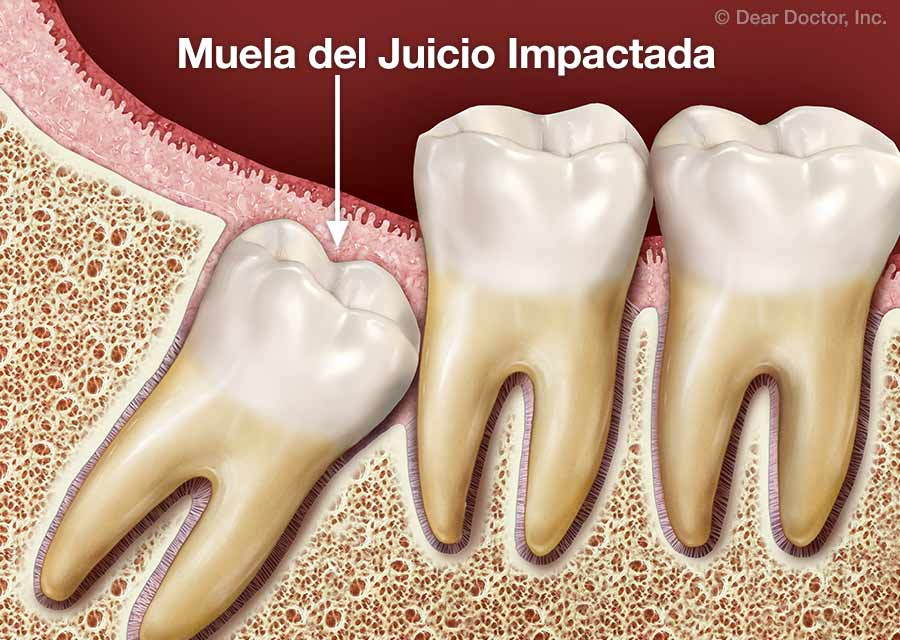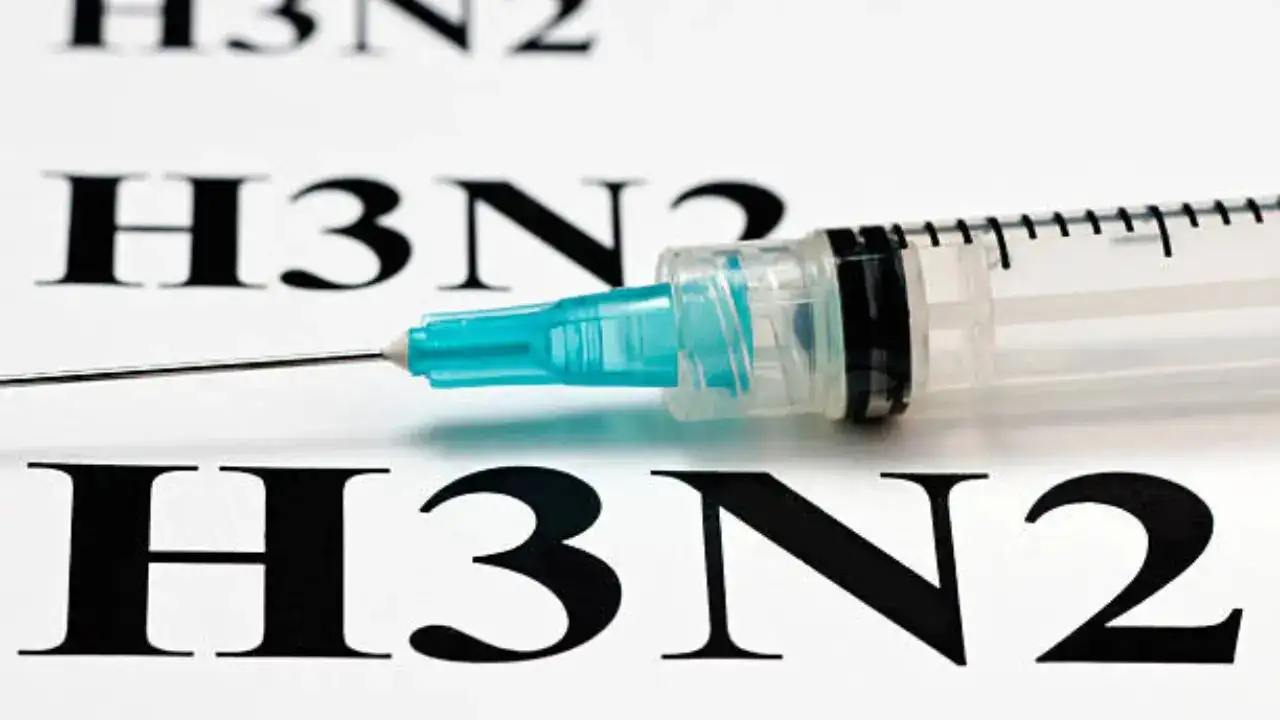Muelas del Juicio: Unveiling the Facts Behind Wisdom Teeth
In the realm of oral health, understanding the significance of muelas del juicio — commonly known as wisdom teeth — is paramount. These third molars, often shrouded in mystery, play a pivotal role in our dental journey. This comprehensive guide delves into the nuances of wisdom teeth, their impact on oral health, and the imperative need for awareness.
What Are Muelas del Juicio? Decoding the Enigma
Muelas del juicio is the Spanish term for wisdom teeth, the final set of molars that typically emerge between the ages of 17 and 25. These teeth served an evolutionary purpose for our ancestors, aiding in the grinding of coarse foods. However, as our diets evolved and dental care improved, the necessity of wisdom teeth diminished.

The Silent Evolution: Eruption of Wisdom Teeth
The eruption of wisdom teeth follows a distinct pattern. Emerging at the back of the mouth, these molars often encounter limited space. This can lead to various complications, such as impacted teeth or misalignment. In some fortunate cases, wisdom teeth emerge without causing any disruption to oral health.
The Unseen Impact: Signs and Symptoms of Wisdom Teeth Troubles
While some individuals experience a smooth transition of wisdom teeth, others face challenges. Recognizing the signs of wisdom teeth-related issues is crucial for timely intervention.
Symptoms of Impacted Wisdom Teeth
Pain: One of the telltale signs of problematic wisdom teeth is pain in the back of the mouth. This discomfort can range from mild to severe and may extend to the jaw.
Swelling and Redness: Swelling and redness around the gum area near the wisdom teeth can indicate inflammation or infection.
Discomfort While Chewing: Wisdom teeth-related problems can make chewing difficult and uncomfortable, leading to a preference for softer foods.
NLP Keyword: “painful wisdom teeth”
The Importance of Early Detection
Proactive dental care plays a pivotal role in managing wisdom teeth-related issues. Regular dental check-ups and consultations with a dentist can facilitate the early detection of problems, preventing potential complications down the road.
Impacted Wisdom Teeth: Understanding Causes and Potential Complications
Impacted wisdom teeth refer to molars that don’t have sufficient space to fully emerge or develop normally. This condition can lead to a series of challenges, necessitating attention and care.
Causes of Impaction
Space Constraints: The primary reason for impaction is often inadequate space in the jaw to accommodate the emergence of wisdom teeth.
Unfavorable Angles: Wisdom teeth that grow at awkward angles can become trapped within the jawbone or adjacent teeth.
Potential Complications
Infection: Impacted wisdom teeth can create pockets where food particles and bacteria accumulate, leading to infections and gum disease.
Crowding: Impacted wisdom teeth can exert pressure on adjacent teeth, causing misalignment or crowding.
Pain and Discomfort: Impaction can result in pain, discomfort, and swelling, necessitating intervention.
Understanding the causes and potential complications of impacted wisdom teeth underscores the importance of vigilant oral care and timely dental visits.
Seeking Professional Guidance: When to Consult a Dentist
Recognizing the signs of wisdom teeth-related issues is only the first step. Knowing when to consult a dentist is equally crucial for effective management.
Indications for a Dental Consultation
Persistent Pain: If you’re experiencing persistent pain in the back of your mouth or jaw, it’s essential to seek professional advice.
Swelling and Inflammation: Swelling, redness, or inflammation around the gum area near your wisdom teeth requires prompt attention.
Discomfort While Eating*: Difficulty while chewing, especially pain or discomfort, should prompt a dental consultation.
Regular Check-ups*: Even if you’re not experiencing symptoms, regular dental check-ups can help detect potential issues before they escalate.
Diagnosis and Evaluation: The Dentist’s Insight
When you consult a dentist regarding your wisdom teeth, they will conduct a comprehensive examination to determine the best course of action.
Dental Examinations
Physical Examination: The dentist will visually inspect your mouth, looking for signs of inflammation, swelling, or other issues.
X-rays: Dental X-rays provide a clear view of the wisdom teeth’s position, alignment, and potential impact on adjacent teeth.
Recommendations: Based on the examination and X-ray results, the dentist will recommend the appropriate steps to take.
Wisdom Teeth Removal: Navigating the Procedure
For many individuals, wisdom teeth removal is a recommended solution to prevent potential complications and enhance overall oral health.
The Extraction Process
Simple Extraction: Wisdom teeth that have fully emerged and are relatively easy to access can often be removed through a simple extraction.
Surgical Extraction: Impacted wisdom teeth or those that haven’t fully emerged might require a surgical extraction, involving a small incision to access the tooth.
Recovery and Aftercare
Post-Operative Care: Following the extraction, your dentist will provide guidelines for post-operative care, including pain management and oral hygiene.
Healing Process: It’s normal to experience some discomfort and swelling after the procedure. These symptoms usually subside within a few days.
Preserving Oral Health: Post-Extraction Care
Maintaining proper oral hygiene after wisdom teeth removal is crucial to ensure optimal healing and prevent complications.
Oral Hygiene Tips
Rinsing: Gently rinsing your mouth with warm saltwater can help keep the extraction site clean and reduce the risk of infection.
Brushing and Flossing: Continue brushing your teeth, but avoid the extraction area for the first few days. Gradually reintroduce gentle flossing as well.
Nutrition*: Stick to a soft diet for the initial days after extraction to avoid placing excessive pressure on the healing area.
Potential Complications: Being Informed
While wisdom teeth removal is a common and generally safe procedure, it’s essential to be aware of potential complications.
Dry Socket: A condition where the blood clot that forms after extraction dislodges, leading to pain and potential infection.
Infection: Infection can occur if proper oral hygiene isn’t maintained after extraction.
Nerve Damage: Rarely, there’s a risk of nerve damage during the removal of lower wisdom teeth, which can lead to numbness or tingling.
Exploring Alternatives: Wisdom Teeth and Orthodontics
For individuals undergoing orthodontic treatment, the presence of wisdom teeth can raise questions about their impact on alignment and overall treatment progress.
Orthodontic Considerations
Potential Disruption: Wisdom teeth can potentially disrupt the alignment achieved through orthodontic treatment.
Consultation with Orthodontist: If you’re undergoing orthodontic treatment, consult your orthodontist to discuss the best approach regarding your wisdom teeth.
Navigating Wisdom Teeth Myths: Fact vs. Fiction
In the realm of oral health, myths and misconceptions often cloud the truth about wisdom teeth. Let’s debunk some common myths.
Myth: All Wisdom Teeth Need Removal
Fact: Wisdom teeth removal depends on individual factors. Not all cases require extraction; consultation with a dentist is key.
Myth: Wisdom Teeth Removal Is Always Painful
Fact: While there can be discomfort during recovery, the extraction itself is performed under anesthesia, ensuring minimal pain.
Myth: Everyone Has Wisdom Teeth
Fact: Not everyone develops wisdom teeth. Some individuals have one, two, three, or even none at all.
Maintaining Optimal Oral Health Beyond Wisdom Teeth
While wisdom teeth awareness is crucial, holistic oral health goes beyond this singular aspect. Adopting preventive practices can ensure a vibrant smile for years to come.
Regular Dental Visits: Schedule routine dental check-ups to catch potential issues early and maintain overall oral health.
Brushing and Flossing: Adhere to proper brushing and flossing techniques to prevent cavities and gum disease.
Balanced Diet: A balanced diet rich in vitamins and minerals contributes to strong teeth and gums.
Embracing Wisdom Teeth Wisdom
In your pursuit of excellent oral health, muelas del juicio serves as a chapter rather than the entire book. This journey is marked by awareness, education, and empowered decisions. As you navigate the intricacies of wisdom teeth, remember that your dentist is a steadfast partner in your oral health journey.
With knowledge as your compass and proactive care as your vessel, you’re well-prepared to steer your oral health toward an optimal, radiant future. Embrace the wisdom, embrace the journey!
Muelas del Juicio FAQs
- ¿Qué son las muelas del juicio?
Las muelas del juicio son el tercer conjunto de molares que suelen erupcionar entre los 17 y 25 años. También se les conoce como terceros molares.
- ¿Por qué se les llama “muelas del juicio”?
El nombre proviene del hecho de que estas muelas aparecen en una etapa de la vida considerada más madura o “sabia”.
- ¿Son siempre necesarias las extracciones de muelas del juicio?
No siempre. Dependiendo del caso y la evaluación del dentista, algunas extracciones pueden ser necesarias para prevenir problemas futuros.
- ¿Causan dolor las muelas del juicio cuando erupcionan?
La erupción de las muelas del juicio puede causar molestias y dolor en algunas personas, pero no en todas.
- ¿Cómo sé si tengo muelas del juicio?
Un dentista puede determinar la presencia de muelas del juicio mediante exámenes visuales y radiografías.
- ¿Qué son las muelas del juicio impactadas?
Las muelas del juicio impactadas son aquellas que no tienen suficiente espacio para erupcionar correctamente y pueden causar problemas.
- ¿Las muelas del juicio pueden causar problemas de alineación dental?
Sí, las muelas del juicio pueden ejercer presión sobre los dientes adyacentes y causar problemas de alineación.
- ¿Cuándo debo consultar a un dentista por mis muelas del juicio?
Debes consultar a un dentista si experimentas dolor, hinchazón, o problemas al masticar en la zona de las muelas del juicio.
- ¿Las muelas del juicio siempre necesitan ser extraídas si están impactadas?
No siempre. El dentista evaluará la posición y el impacto de las muelas para determinar si la extracción es necesaria.
- ¿La extracción de muelas del juicio duele?
La extracción se realiza bajo anestesia, por lo que no sentirás dolor durante el procedimiento. Puede haber incomodidad después.
- ¿Cuánto tiempo dura la recuperación después de la extracción?
La recuperación generalmente toma unos días, pero puede variar según el caso.
- ¿Cuáles son los cuidados posteriores a la extracción?
Los cuidados incluyen mantener el área limpia, seguir las indicaciones del dentista y evitar ciertos alimentos.
- ¿Puedo comer normalmente después de la extracción?
Se recomienda una dieta blanda durante los primeros días para evitar presión en el área de extracción.
- ¿Es normal sentir hinchazón después de la extracción?
Sí, es normal sentir hinchazón y molestias leves después de la extracción, pero esto debería mejorar con el tiempo.
- ¿Las muelas del juicio afectan los frenos dentales?
Sí, las muelas del juicio pueden ejercer presión sobre los dientes y afectar la eficacia de los frenos dentales.
- ¿Puedo retrasar la extracción de muelas del juicio?
En algunos casos, sí, pero es importante seguir las recomendaciones del dentista para evitar complicaciones.
- ¿Las muelas del juicio siempre causan problemas?
No siempre. Algunas personas pueden tener muelas del juicio sin experimentar problemas, pero es importante monitorear su desarrollo.
- ¿Es seguro extraer muelas del juicio durante el embarazo?
En general, se recomienda evitar procedimientos dentales mayores durante el embarazo, a menos que sea absolutamente necesario.
- ¿Cuáles son las opciones de anestesia para la extracción?
El dentista puede utilizar anestesia local o sedación, según el caso y las preferencias del paciente.
- ¿Debería extraer las muelas del juicio incluso si no causan problemas?
La decisión de extraer las muelas del juicio sin problemas aparentes depende de la evaluación del dentista y las preferencias del paciente.



